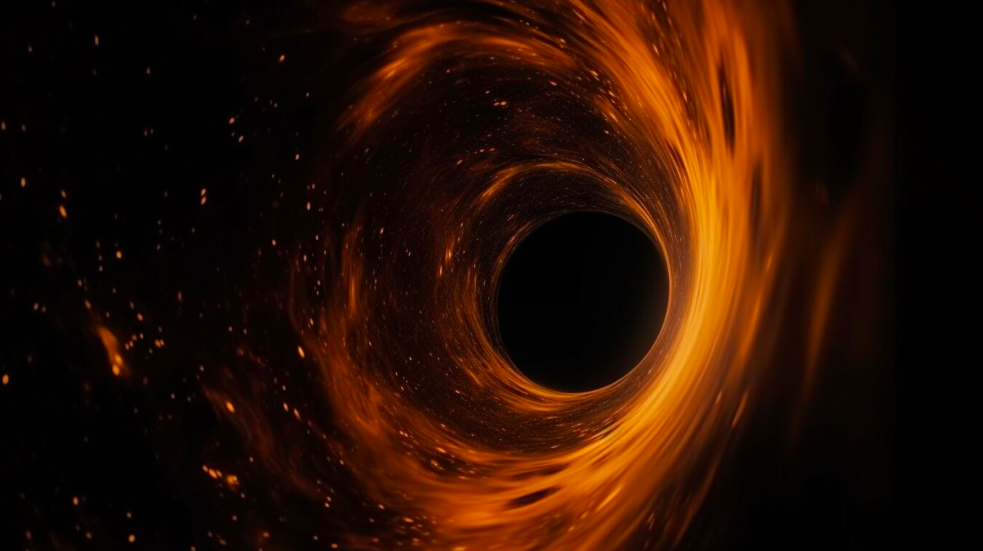Exploring Black Holes: The Enigmatic Secrets of the Cosmos

Welcome to a cosmic odyssey that will take you beyond the boundaries of our understanding. "Exploring Black Holes: The Enigmatic Secrets of the Cosmos" is a captivating journey into the heart of one of the most enigmatic phenomena in the universe: black holes. In this article, we will delve deep into the cosmic mysteries surrounding these celestial objects, revealing their awe-inspiring nature and the secrets they hold.
The Cosmic Giants
Black holes, often referred to as the cosmic giants, are regions in space where gravity is so intense that nothing, not even light, can escape their grasp. These mysterious entities are formed from the remnants of massive stars that have undergone a supernova explosion. Let's explore the fascinating aspects of black holes in detail.
Formation of Black Holes
From Stellar Demise to Cosmic Enigma
The birth of a black hole begins with the spectacular death of a massive star. When such a star exhausts its nuclear fuel, it collapses under its gravity, forming a singularity—a point of infinite density. Surrounding this singularity is the event horizon, an invisible boundary beyond which nothing can escape.
Types of Black Holes
Stellar, Intermediate, and Supermassive
Black holes come in various sizes, with stellar, intermediate, and supermassive black holes being the most common types. Stellar black holes, formed from the remnants of massive stars, are relatively small but incredibly dense. Intermediate black holes fall between stellar and supermassive in terms of size and mass. Supermassive black holes, found at the centers of galaxies, can be billions of times more massive than our Sun.
The Cosmic Phenomena
Gravitational Time Dilation
One of the mind-bending consequences of black holes is gravitational time dilation. As objects approach the event horizon, time slows down relative to distant observers. This phenomenon was famously illustrated in the movie "Interstellar," where time dilation played a crucial role in the plot.
The Unseen Beauty
Hawking Radiation
While black holes are known for their ability to devour everything in their path, they also possess a surprising feature known as Hawking radiation. This phenomenon, theorized by physicist Stephen Hawking, suggests that black holes can emit particles and slowly lose mass over time.
The Cosmic Impact
Affecting Galaxies and the Cosmos
Black holes have a profound impact on their surroundings. They can influence the formation and evolution of galaxies, shaping the very fabric of the cosmos. Their immense gravitational pull can disrupt nearby stars and even trigger the birth of new ones.
Black Holes and Wormholes
Portals to Other Dimensions
The concept of black holes and wormholes often goes hand in hand. While black holes are known for trapping everything that enters, some theories suggest that they could potentially lead to other dimensions or even serve as shortcuts through the vastness of space.
The Ongoing Quest
Unraveling the Unknown
The study of black holes continues to be a frontier of astrophysics. Scientists use powerful telescopes and cutting-edge simulations to unravel the mysteries surrounding these cosmic enigmas. The more we learn, the more questions arise.
FAQs (Frequently Asked Questions)
Q: Are black holes only found in our galaxy?
Black holes can be found in galaxies throughout the universe, not just in our Milky Way.
Q: Can anything escape a black hole?
Once an object crosses the event horizon of a black hole, it is unlikely to escape due to the extreme gravitational forces.
Q: Are there any known supermassive black holes in our galaxy?
Yes, there is strong evidence that a supermassive black hole, named Sagittarius A*, resides at the center of our Milky Way galaxy.
Q: How do scientists detect black holes?
Scientists often detect black holes by observing the gravitational effects they have on nearby objects or by studying the X-rays emitted by matter being pulled into them.
Q: Could a black hole swallow our entire galaxy?
While it's unlikely that a black hole would devour an entire galaxy, it can have a significant impact on the structure and evolution of a galaxy.
Q: Are there any practical applications of black hole research?
While black hole research primarily expands our understanding of the cosmos, it also contributes to advances in physics and our knowledge of extreme environments in the universe.
Conclusion
"Exploring Black Holes: The Enigmatic Secrets of the Cosmos" has taken us on a thrilling journey through the mysteries of these cosmic giants. From their formation to their impact on the universe, black holes continue to captivate the imagination of scientists and stargazers alike. As we peer into the depths of space, we can't help but wonder what other secrets the cosmos holds, waiting to be unveiled.


